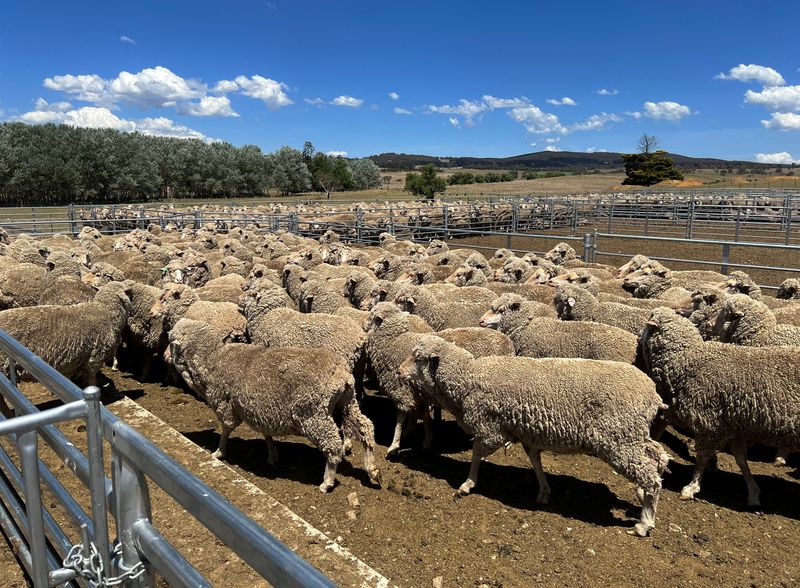CANBERRA (Reuters) – A rising number of Australian farmers are disgruntled with the government’s climate and agricultural policies, a survey showed on Wednesday, as measures to protect the environment draw farmers’ ire in Europe and some other places.
Australia is one of the world’s biggest agricultural exporters, shipping nearly $50 billion worth of products as varied as beef, wheat and wine in the 2022-23 financial year.
Since coming to power in 2022, the country’s Labor government has passed legislation that will ban exports of live sheep and restrict the use of water for farming in some areas.
It has also sought to raise more money from farmers for biosecurity and pushed ahead with renewable energy projects in rural areas, causing anger in the farming sector.
Seventy-three percent of 1,026 farmers surveyed across the country said government policies were harming the industry, up from 54% a year ago, the poll by the National Farmers’ Federation (NFF) and communications agency Seftons found.
Eighty percent said the government did not understand or listen to farmers, up from 41% last year, with only 10% saying the government had a positive plan to grow the farm sector.
Half of respondents thought Australia’s food and fibre production would increase over the next decade, down from 56% a year ago.
“The results are unsurprising. Critical issues like the live sheep export ban, biosecurity tax and water buybacks have weighed heavily on farmers,” said NFF President David Jochinke.

“Farmers are frustrated,” he said. “They feel they aren’t being heard and they are being steamrolled by harmful policies – that appear to be driven by activist groups or politicians, not farmers.”
Earlier this year, farmers in numerous European countries staged protests over a range of issues including excessive environmental rules.

